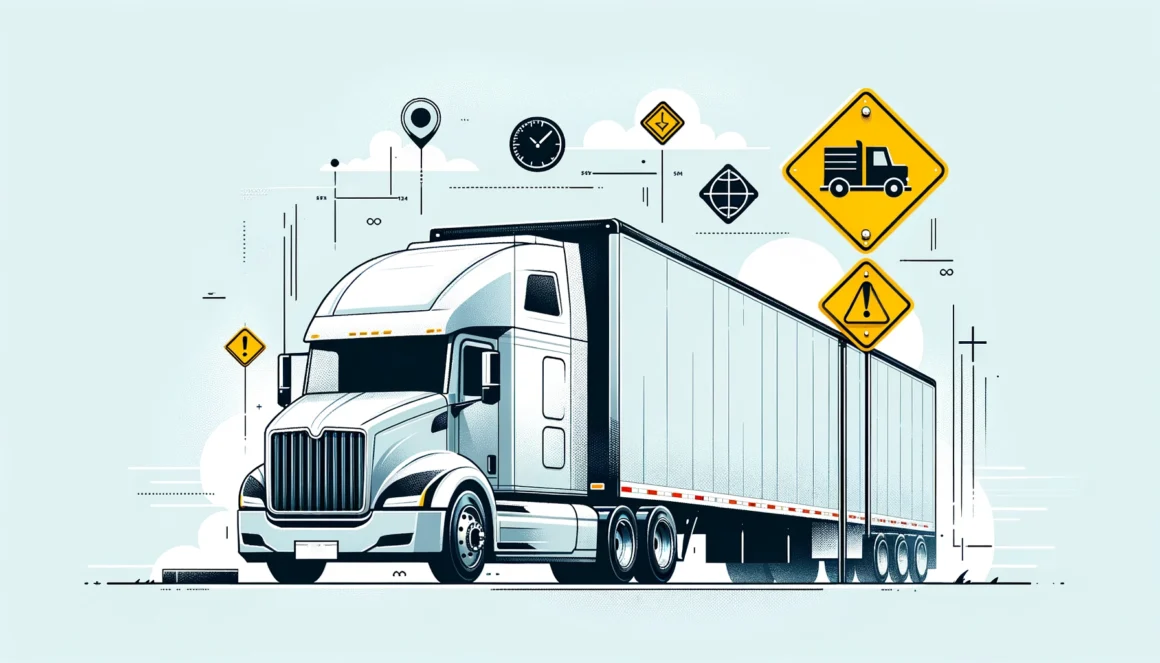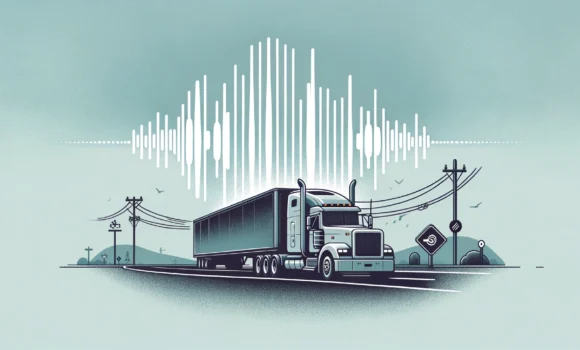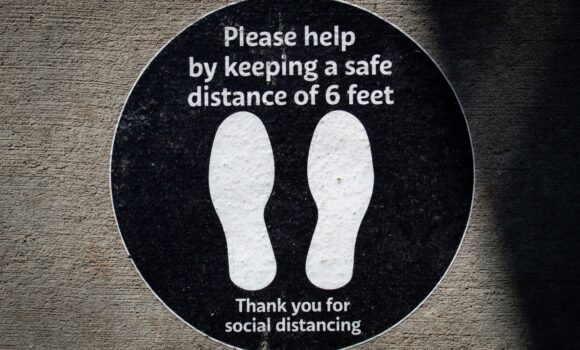The Most Common Motor Carrier Safety Violations

Understanding FMCSA Guideline Violations
The Federal Motor Carrier Safety Administration (FMCSA) regulates motor carriers to ensure all motorists on the road stay safe. While there are specific safety protocols in place that all motor carriers and their drivers must adhere to, safety violations are not uncommon.
Here are the top motor carrier safety violations reported by the FMCSA.
Moving Violations
Moving violations was number one on the list of violations found by the FMCSA. These violations include:
- Speeding – The high demand to get deliveries made quickly can result in driving over the speed limit.
- Tailgating – Following too closely behind another vehicle is a bad driving habit that can cause a severe accident.
- Improper lane changes – Changing lanes without signaling or cutting off other motorists are dangerous road maneuvers that should never be made.
- Improper turns – Making u-turns or left-hand turns when road signs clearly state that it is not permitted can cause a devastating accident.
- Reckless driving – Even though the FMCSA mandates driving defensively to stay safe, this is still a top safety violation.
- Failure to yield to the right of way – Not obeying the right of way rule can put other motorists in danger.
- Railroad crossing violations – Trucks must make a complete stop before proceeding through a railroad crossing.
- Failure to obey traffic control devices – Running stoplights and speeding up to beat a yellow light is a recipe for a motor vehicle crash.
Failure to Use a Seatbelt While Operating a CMV
All commercial drivers are never permitted to operate a commercial motor vehicle without being properly restrained by a seatbelt. Passengers must also buckle up properly. The motor carrier must also be equipped with seatbelts for all permitted occupants and assembled correctly.
Using a Handheld Mobile Phone While Operating a CMV
It’s common knowledge that using a smartphone or any other electronic handheld device while driving under any circumstances can cause a severe accident. However, it’s still a common violation for commercial drivers. Motor carrier companies that ask their truck drivers to use handheld devices while driving violate this rule.
Unauthorized Passengers on Board
The FMCSA states that unless there is a special authorization in writing, no driver can transport any person or permit any person to be transported in a commercial vehicle other than a bus used for that purpose. If there is an authorization given under this circumstance, the transported person’s name must be on record with the locations and dates on which the transportation is taking place.
Driving Under the Influence of Drugs
The FMCSA has strict guidelines for drug possession and driving under the influence of drugs. It’s outlined explicitly that the use of any medications, including “pep pills” and “bennies” are forbidden and are a severe violation. If a driver must take prescription drugs by a licensed medical practitioner, the substance must not affect the driver’s ability to operate the vehicle. Any substance that impairs drivers can be the catalyst to a severe or deadly motor vehicle accident.
Driving While in Possession of Intoxicating Beverages
While truck drivers may be summoned to carry alcoholic beverages as cargo, having an open bottle and consuming alcoholic beverages while driving a commercial vehicle is a significant violation and can result in a severe accident.
Failure to Conduct a Pre-Trip Inspection
Commercial vehicle drivers must conduct pre-trip inspections and ensure the following are in good working order:
- Service Brakes
- Trailer brakes
- Hand brakes
- Steering
- Lights and reflectors
- Tires
- Horn
- Wipers
- Rearview mirrors
- Wheels and rims
- Emergency equipment
Failure to Implement or Properly Place Warning Devices
Commercial vehicles must have hazard warning signal flashers displayed when stopped on a highway or shoulder. When stopped, the driver must immediately display hazard warning signal flashers and keep them illuminated until the vehicle is removed from the area. For example, a commercial driver may need to stop and use warning devices if there are leaking or flammable substances.
Failure to Secure Vehicle Equipment or Load
All commercial vehicle cargo must be properly secured and distributed in the vehicle. The tailgate, tailboard, doors, tarpaulins, spare tires, and other equipment must also be fastened and secured before taking to the road. Drivers must also check that any of the vehicle’s cargo does not obstruct the driver’s view or interfere with the driver’s free movement of their arms or legs should they need to move quickly in the event of an emergency.
What to Do After a Truck Accident
Being involved in a truck accident is an overwhelming experience and can pose life-threatening injuries in many cases. Knowing where to turn when going through a difficult time can make all the difference when you need help.
Serious injuries need strong attorneys. When it comes to protecting your rights we are here for you. Our attorneys are ready to fight for your rights, keep them protected and ensure your best interests remain a priority. If you have suffered severe injuries due to a motor carrier driver’s negligence, we are here to be your advocate when you need us. We’ll stop at nothing to ensure you receive the most successful outcome possible.
Contact today at (417) 887-4300. For challenging legal matters, we are here for you every step of the way.
Tell Us About Your Case
Contact us today at (417) 887-4300 or online to arrange your free case evaluation. Our Experienced Trial Attorneys will walk you through your legal options.


